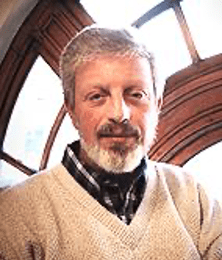Obituary: Vladimir Cherkassky Advanced Computing to Understand the Human Brain
Vladimir Cherkassky, a senior scientific staff member at Carnegie Mellon University died on July 17, 2022, at the age of 68. For 26 years, Cherkassky worked at the Center for Cognitive Brain Imaging in the Department of Psychology, Dietrich College of Humanities and Social Sciences. He leaves behind his wife, Galina Cherkassky, and a legacy of excellence in scientific computing.
Cherkassky was educated in Ukraine, where he earned a M.S. in computer science from the National Polytechnic University, Kiev, in 1977, and a Ph.D. in neuroscience from the Bogomoletz Institute for Physiology, Kiev, in 1983. He then worked for several years at the Ukrainian Academy of Sciences in Kiev, doing research on motor control models.
Cherkassky and his wife moved from Kiev to Pittsburgh in the mid 1990s, where they were provided refuge by Pittsburgh’s community, among the welcomers being Robert Sclabassi, professor of neurological surgery and founder of the Center for Clinical Neurophysiology and the Laboratory for Computational Neuroscience at the University of Pittsburgh.
Cherkassky joined the Center for Cognitive Brain Imaging (CCBI) at Carnegie Mellon in 1996, where he quickly took to unraveling the mysteries of the human brain using the then-new technology of functional MRI (fMRI). His scientific expertise was in both the analysis of neurophysiological data and in relating the neurophysiological activity to psychological processes. He worked closely with other CCBI scientists, including Marcel Just, Tim Keller and Rob Mason. He also worked with many postdoctoral fellows and Ph.D. students who learned to perform fMRI analyses under his guidance and went on to illustrious careers at other universities.
Cherkassky developed new algorithms that uncovered regularities in brain activity revealing the underlying psychological organization. He was the author on tens of fMRI studies of brain function, including a first-authored article in 2006 that was among the first to report disordered coordination between brain systems in autism. He was also a key team member in many studies of the neural coding of various concepts from their fMRI neural signature.
He was also involved in major collaborations with other laboratories that studied suicidal ideation with David Brent, M.D., Distinguished Professor of Psychiatry, Pediatrics, Epidemiology, and Clinical and Translational Science and Endowed Chair in Suicide Studies at the University of Pittsburgh, fMRI studies of autism with Nancy Minshew, M.D., director of the NIH Autism Center of Excellence at the University of Pittsburgh and machine learning studies of fMRI representations with Tom Mitchell, Faculty Founders University Professor in the School of Computer Science. In the best scientific tradition, Cherkassky developed new ways to understand a fascinating aspect of nature and taught his methods to new generations of researchers.
There will be a graveside ceremony at 1 p.m., Thursday, July 21, at West View Cemetery of Rodef Shalom Congregation (4720 Perry Hwy, Pittsburgh, PA 15229).
